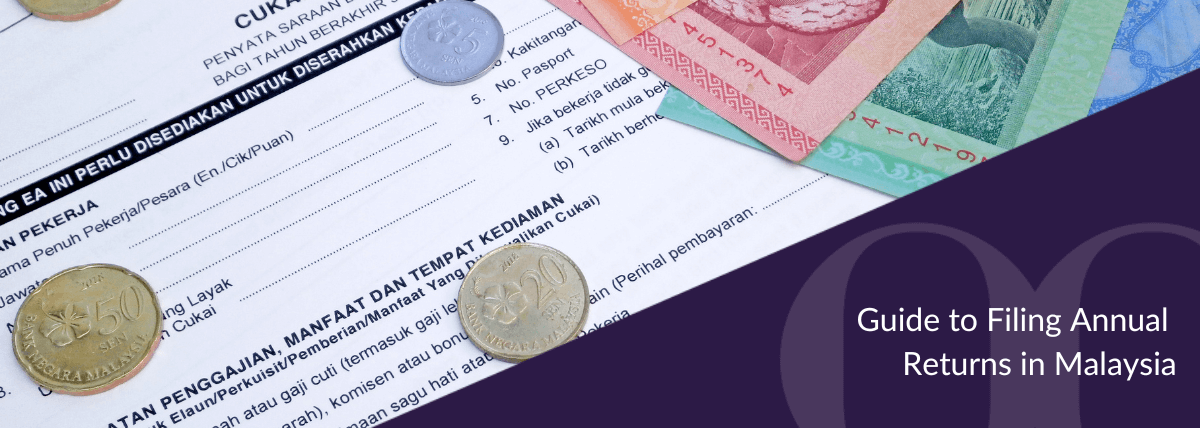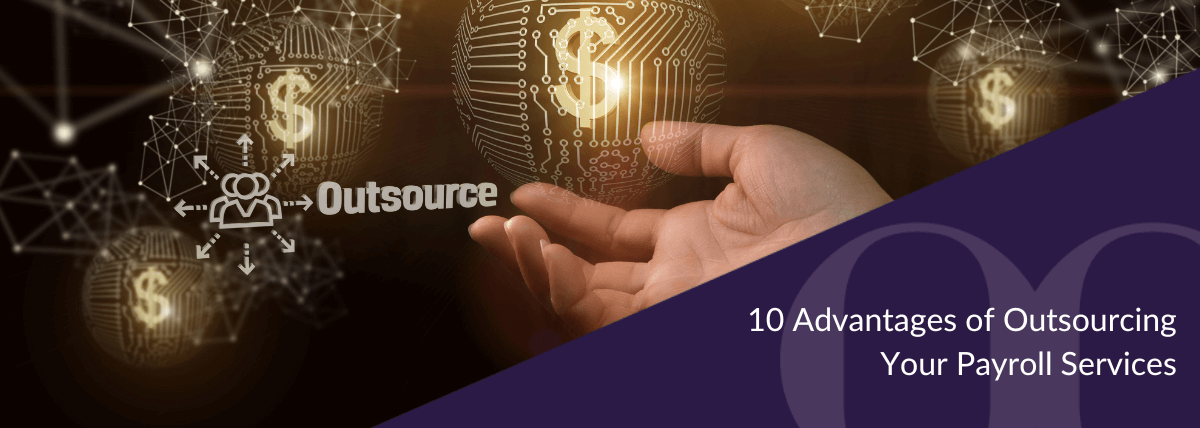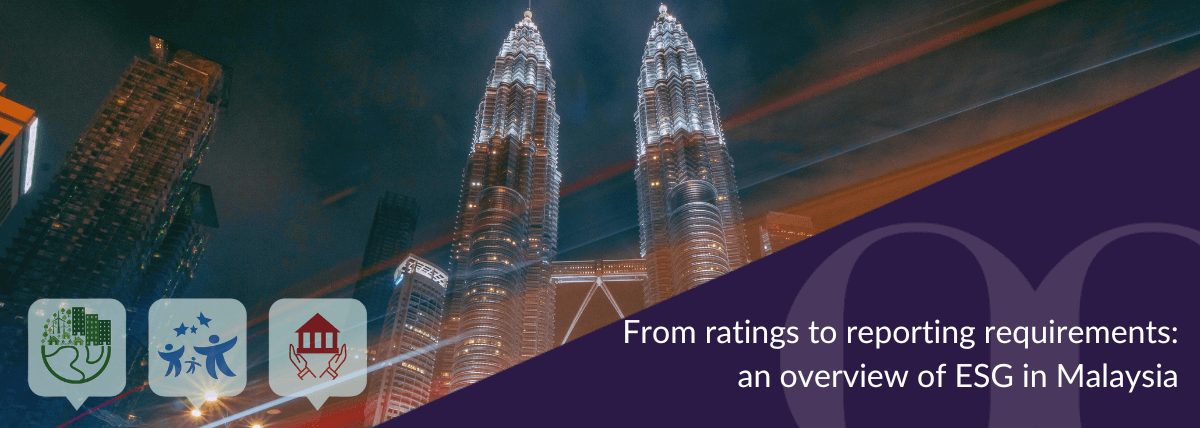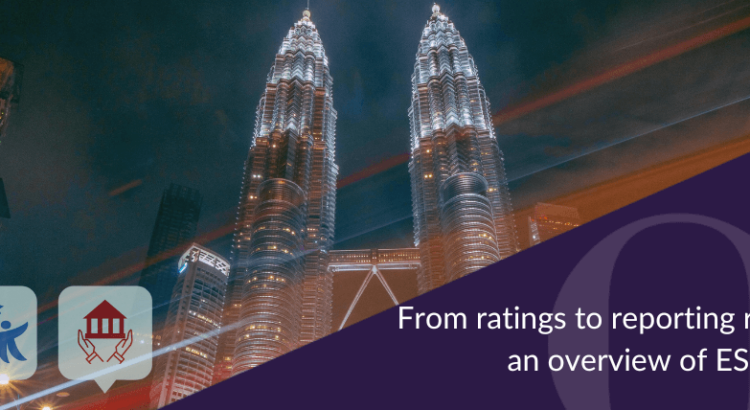With global markets increasingly focused on sustainability and responsible practices, growing businesses must embrace environmental, social and governance (ESG) factors if they are to survive and thrive. Companies that demonstrate a real commitment to reducing their environmental footprint, maintaining positive stakeholder relationships and improving their ways of operating are more likely to attract investors and position themselves for long-term success.
New methods of measuring and showcasing corporate ESG action and achievements are emerging throughout the Asia-Pacific region.
The Bursa Malaysia stock exchange encourages action around ESG in Malaysia through the FTSE4Good Bursa Malaysia (F4GBM) Index, an ESG rating system maintained in collaboration with FTSE Russell. The Index is designed to help guide investor decisions, increase the profile of high-performance companies, encourage transparency and support the move to a sustainable economy.
To help businesses leverage ESG practices and reporting as investment strategies, Bursa Malaysia has also announced it will introduce a new framework on ESG standards by the end of 2023.
Ahead, we consult Tina Thomas, Head of ESG for BoardRoom, to learn more about ESG frameworks and sustainability ratings in APAC and how businesses can demonstrate high-level compliance.
Understanding the enhanced ESG framework
ESG reporting requirements for APAC businesses differ from region to region. In Malaysia, public listed companies are having to adapt to tighter rules enforced by the Bursa Malaysia stock exchange.
Since ESG reporting was made compulsory for listed companies in 2016, companies have had the flexibility to use the reporting framework of their choosing. Now, Bursa Malaysia is introducing more stringent reporting requirements in a phased, multi-year approach, with the view to bolster the resilience of listed companies and encourage more investment.
“If you look at the reports that were done prior to last year, every report looked different, as it was up to companies to decide what to report,” Tina says. “From this year onwards, every company has to report against a mandatory set of factors.”
The new enhanced Sustainability Reporting Framework will support businesses to adopt international best practices for ESG-related disclosures. It will require companies to report against common indicators, thus promoting standardisation of reporting in the region and boosting investor confidence.

About ESG ratings
The evolution of Malaysia’s ESG reporting requirements has also bolstered the significance of ESG ratings in the region.
“One way that ratings agencies assess a company is by looking at their sustainability reports,” Tina says. “Because companies have to disclose ESG information annually, ratings agencies can easily compare listed companies and rate them accordingly.
“They will look at a company’s commitments under their sustainability strategy and check their website to see if the information there aligns with their comments in the report.”
ESG ratings can be a useful tool in the pursuit of enhanced corporate sustainability.
“It’s an opportunity for companies to understand how they’re performing against their peers and improve their ESG credentials,” Tina says. “So the ratings can help encourage a culture of change within companies.
“If a company has a poor ESG rating, it means that some elements of ESG have not been managed well. These elements might critically impact operations and, therefore, indicate a level of risk that a company is facing.
“This gives companies an opportunity to implement actions to mitigate that risk.”
The challenges of ESG ratings in Malaysia
While ESG ratings may be a promising tool on the path towards sustainability, the challenges they pose for Malaysian businesses are as follows:
- Ratings are limited to large-cap companies
- Scoring methodologies differ
- One rating for ESG may not be sufficient
- Quality ESG reporting can be difficult.
“The Malaysian market is dominated by SMEs, but they are not being rated because there’s no huge investor interest,” Tina says. “So if you think about who’s being tracked and that the majority of companies in Malaysia are SMEs, there’s a big gap.”
Many SMEs are eager to elevate their ESG performance, but the lack of ratings in their bracket makes peer-to-peer assessment and benchmarking difficult.
“So we’re seeing considerable differences in how companies are being rated,” Tina confirms.
The absence of a universal ratings methodology means that many businesses are finding it hard to set meaningful targets.
“For example,” Tina says, “an oil and gas company might look after their people well and invest in training. It might be well-run and have really good practices. But when it comes to the environmental aspect, it doesn’t fare well.
“This is one of the reasons that the credibility of ratings is being challenged. Personally, I feel that ESG should not be grouped together.”
Having separate ratings for environmental, social and governance would help investors to:
- understand specific areas where a company excels or needs improvement; and
- make better decisions based on their specific interests and concerns.
“One of the challenges is understanding what to measure, what good data looks like and how to report it effectively,” Tina says. “Also, businesses often ask what good targets look like and how they might achieve net zero.”
Robust reporting involves the collection and analysis of vast amounts of data. Often, businesses lack the processes, resources and expertise to execute these tasks in an effective and timely manner.
In addition, as listed companies are only required to report annually, the prospect of generating an accurate, meaningful report incorporating a year’s worth of data can seem daunting at best – and impossible at worst.
“Sometimes the numbers are not current or just made up,” Tina says.
How to strengthen your ESG compliance
Wherever your business is located, proper compliance with ESG reporting requirements can have a variety of benefits. It can help attract investment, improve your corporate reputation, minimise your risk of penalties for non-compliance and more.
Remember, ESG ratings agencies look to sustainability reports as part of their assessment process. So, if you want to improve your rating, your reports can be valuable for communicating your efforts, achievements and commitments.
The first step to strengthening your ESG compliance is to partner with a reputable corporate services provider with comprehensive ESG services.
A skilled provider can help you to:
A specialist team will collaborate with key personnel in your organisation to execute these tasks and ensure the best outcomes. According to Tina, they can also assist with briefing directors on your company’s ESG progress and direction, a requirement in Malaysia.
“The directors’ briefing is important because the directors are ultimately responsible for ESG reporting,” Tina says. “At the briefing, we go through what your last year’s metrics looked like, what your peers are doing and what you need to consider over the next few years.
“It’s an opportunity to influence your next steps as a business.”

Elevate your ESG performance
ESG is a transformative force shaping the future of business in APAC. Understanding the intricacies of ESG frameworks and ratings is essential for business executives navigating this evolving landscape.
If you are expanding operations into Malaysia, our experienced company incorporation and ESG teams can work together to embed strong ESG practices and values into your business from the beginning. Our knowledgeable company secretarial specialists can also help ensure the corporate governance aspect of your ESG strategy exceeds expectations.
BoardRoom’s end-to-end ESG service provides customised solutions and support to help you emerge as a leader in the sustainability space. Contact us to get started.
Contact BoardRoom for more information:
Related Business Insights
-

08 Jul 2024
Guide to Filing Annual Returns in Malaysia
Ensure compliance and maintain your business's integrity in Malaysia with this guide on filing annual returns effic …
READ MORE -

24 May 2024
10 Advantages of Outsourcing Your Payroll Services
Explore the benefits of outsourcing payroll and discover how outsourced payroll providers like BoardRoom can stream …
READ MORE -

24 May 2024
IPO Application: A Guide to Listing Your Company in Malaysia
Navigate your IPO application in Malaysia effortlessly with BoardRoom's expert support and unlock opportunities on …
READ MORE


